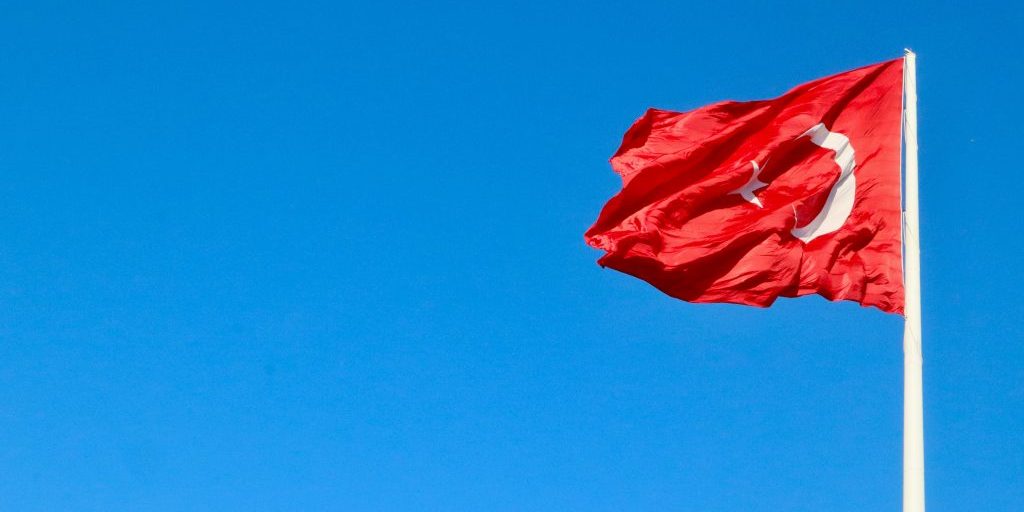Alarm at threats, violence against journalists, media outlets in Türkiye
PICTURE: Konevi/Pexels
Partner human rights and journalist organisations are alarmed by the recent escalation in the Türkiye government’s crackdown on freedom of expression and freedom of peaceful assembly following the detention of Istanbul’s mayor Ekrem İmamoğlu.
Tens of thousands continue to participate in overwhelmingly peaceful mass protests across the country, marking the largest demonstrations in over a decade.
The protests, which initially began in major cities, have spread throughout the country, and the police have responded with unlawful and indiscriminate force to disperse the crowds.
Journalists face significant restrictions, including arrests and physical assaults, and social media platforms have been pressured to suppress information about unfolding events. The government must immediately cease its attacks against peaceful protesters, stop targeting journalists and news channels, and halt its crackdown on online speech.
We also urge social media companies to take immediate steps to restore access to blocked accounts containing protected speech while implementing necessary measures to ensure continued accessibility of their platforms.
The crackdown on mass protests has seen at least 11 local journalists detained in Istanbul and Izmir due to their reporting of the protests, with seven remanded in detention on 25 March for allegedly violating the Law on Meetings and Demonstrations. They were released after appeal on 27 March, pending trial.
At least 10 local journalists were physically assaulted by the police while covering the protests on the ground in Istanbul, and one journalist was reportedly assaulted by protesters.
The international media have also been caught up in the crackdown. The BBC reported on 27 March that its correspondent, Mark Lowen, who was in Istanbul to cover the protests, was detained at his hotel and later deported on the grounds that he was a ‘threat to public order’.
Reporting on the events is also restricted by Türkiye’s Radio and Television Supreme Council (RTÜK). RTÜK’s chair Ebubekir Şahin has urged broadcast media, their anchors and commentators to ensure their reporting ‘remain free from political bias’, warning that failure to do so would result in maximum penalties, including the revocation of their licenses.
On 21 and 27 March, RTÜK followed through by issuing administrative fines and temporary broadcast suspensions of up to 10 days to TV channels Halk TV, SCZ TV, Tele 1, and Now TV.
We call on Türkiye, and specifically RTÜK, to immediately stop these media freedom violations and create an environment that allows the media to provide the public with necessary information and to report on events free from state pressure
Intimidating journalists to disseminate only government-approved content undermines the core principles of independent journalism.
We also reiterate that journalists and other observers must be protected and able to freely report on public interest issues, including monitoring the actions of law enforcement officials, and must not face reprisals or other harassment.
Social media is one of the last channels through which people in Türkiye have access to independent voices, and where activists and journalists can share their opinions relatively freely. Amid mass protests, the authorities have swiftly imposed heavy restrictions on social media and messaging apps, including ordering social media platforms to block protest-related content.
Major social media platforms and messaging apps were subjected to bandwidth throttling starting at 7am local time on 19 March, when the detentions of the mayor and others took place.
The restrictions appeared to be limited to Istanbul and lasted for 42 hours, until 21 March. No clarification was provided regarding the reasons for these restrictions or why they were lifted. Under the Electronic Communications Law (Law no. 5809), such restrictions can be implemented by the Information Technologies Authority (BTK) on orders by the Presidency where there is peril in delay and threats to national security or public order.
These administrative restrictions are temporary and are reviewed by the judiciary in 24 hours at the latest.
The BTK issued hundreds of blocking orders for the social media accounts of journalists, media organisations, civil society organisations and human rights defenders based on Article 8/A of the Law no. 5651, non-compliance with which can result in severe sanctions against social media companies.
Although it appears that many of the accounts on X are currently blocked, X issued a statement according to which it objected to ‘multiple court orders […] to block over 700 accounts’, including those of news organisations, journalists, and political figures.
On 26 March, X announced that they filed an individual application before the Constitutional Court challenging an order by the BTK to block 126 accounts.
Authorities must refrain from using legal and extra-legal means to exert pressure on social media platforms to censor online content in violation of their international human rights obligations, particularly content involving political discourse, which enjoys the highest level of protection
Türkiye must allow free and unfettered access to the Internet, and rescind all unlawful orders to block social media accounts of those exercising their right to free expression to criticise the authorities.
We renew our call to social media platforms to resist political pressure and refrain from restricting access to protected expression. Rather than simply accepting such blocking orders, we urge platforms to take all steps possible to limit their scope and duration, including by challenging their legality in court.
Platforms should also be transparent towards affected users and the broader public about government requests for censorship and measures taken in response; and take all possible steps to maintain platform access in the event of shutdowns or throttling.
Signatories:
ARTICLE 19
European Federation of Journalists (EFJ)
International Federation of Journalists (IFJ)
International Press Institute (IPI)
Norwegian Helsinki Committee (NHC)
South East Europe Media Organisation (SEEMO)
World Organization Against Torture (OMCT)
- This article was first published here




